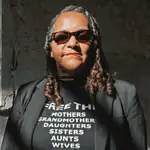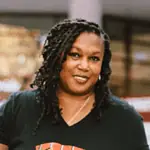Prison Abolition at the Intersections of Food, Health, Disability Justice
On March 27, 2022, AWN hosted a conversation with Andrea James, Taylar Nuevelle, Kanav Kathuria, and Gabriel Arkles on the topic of prison abolition at the intersections of food, health, and disability justice.
Join us in conversation with Andrea, Taylar, Kanav, and Gabriel as we discuss the intersections of racial justice, gender justice, food justice, health, and prison abolition.
Prison abolition is a racial justice, gender justice, and disability justice issue – and abolition is also deeply tied to food justice and health justice. Prisons can be a “slow death” (Joshua Price), and incarceration is itself a disabling experience, and a cause and a consequence of incarceration (Talila Lewis and Liat Ben-Moshe). Incarceration is a form of violence that devastates incarcerated people’s health, including through denial of access to safe, culturally appropriate, accessible, and healthy food, and through isolation from communities, home, and families. Activists, advocates, and scholars are working to name these harms, and support incarcerated and formerly incarcerated people in the fight for liberation, community care, and abolition.
Moderator: Lydia X. Z. Brown, AWN Director of Policy, Advocacy, and External Affairs
Corrected transcript coming soon.
Presenters
Andrea James, JD

Andrea James, JD, is the Founder and Executive Director of The National Council For Incarcerated and Formerly Incarcerated Women and Girls, Founder of Families for Justice as Healing, author of Upper Bunkies Unite: And Other Thoughts on the Politics of Mass Incarceration, a 2015 Soros Justice Fellow, and recipient of the 2016 Robert F. Kennedy Human Rights award. As a former criminal defense attorney and a formerly incarcerated woman, Andrea shares her personal and professional experiences to raise awareness of the effect of incarceration of women on themselves, their children, and communities. Her work is focused on ending incarceration of women and girls and contributing to the shift from a criminal legal system focused on police and prisons, to a system led by directly affected people from within their communities and based on individual and community accountability.
Taylar Nuevelle

Taylar Nuevelle (she/her) is the Founder and Executive Director of Who Speaks for Me (WSFM). WSFM a National Nonprofit that Taylar designed while incarcerated. During her four and a half years in federal prion, Taylar spent her time assisting other incarcerated people with preparing internal grievances as well as pro se motions for post conviction relief. WSFM was born from the stories of the women Taylar did time with. WSFM works to raise awareness about the intersection of trauma and the rise in incarceration rates among women, girls and LGBTQ people—with a focus on BIPOC—and aims to interrupt and dismantle the “Trauma-to-Prison Pipeline”—a concept Taylar is credited with creating. Taylar is a queer, Black cis woman. She is a mother, writer, advocate, activist and public speaker. Taylar holds a Bachelor’s s in English Literature and her writings have been published in The Washington Post, Talk Poverty, The Nation, the Vera Institute for Justice Blog and Ms. Magazine online.
Kanav Kathuria

Kanav Kathuria’s work lies in the intersection of abolitionism, public health, and food sovereignty. He is a 2019 Open Society Institute Baltimore Community Fellow and the co-founder of the Maryland Food & Prison Abolition Project, a Baltimore-based organization that connects urban and small-scale farms to prisons to use food as a tool for resistance.
Gabriel Arkles

Gabriel Arkles is an attorney and writer based in Brooklyn, NY. He is Senior Counsel at the Transgender Legal Defense and Education Fund, where he litigates in defense of trans and nonbinary communities. He also serves on the steering committee of the Muslim Alliance for Sexual and Gender Diversity and the board of HEARD.
